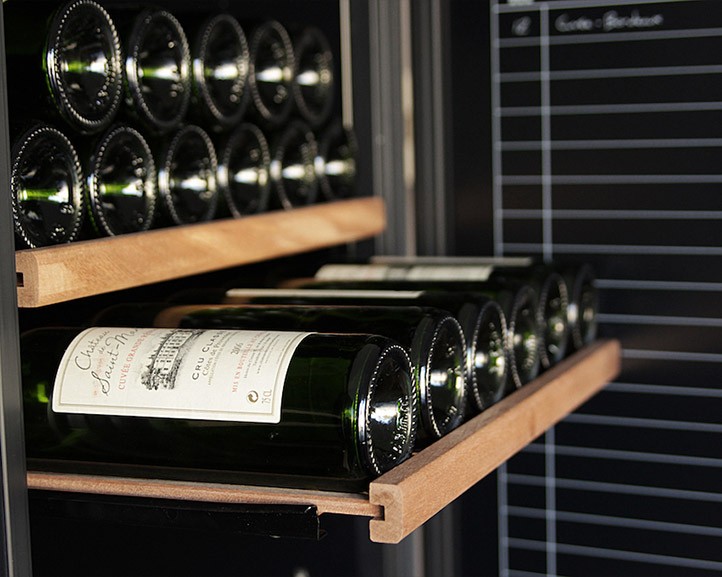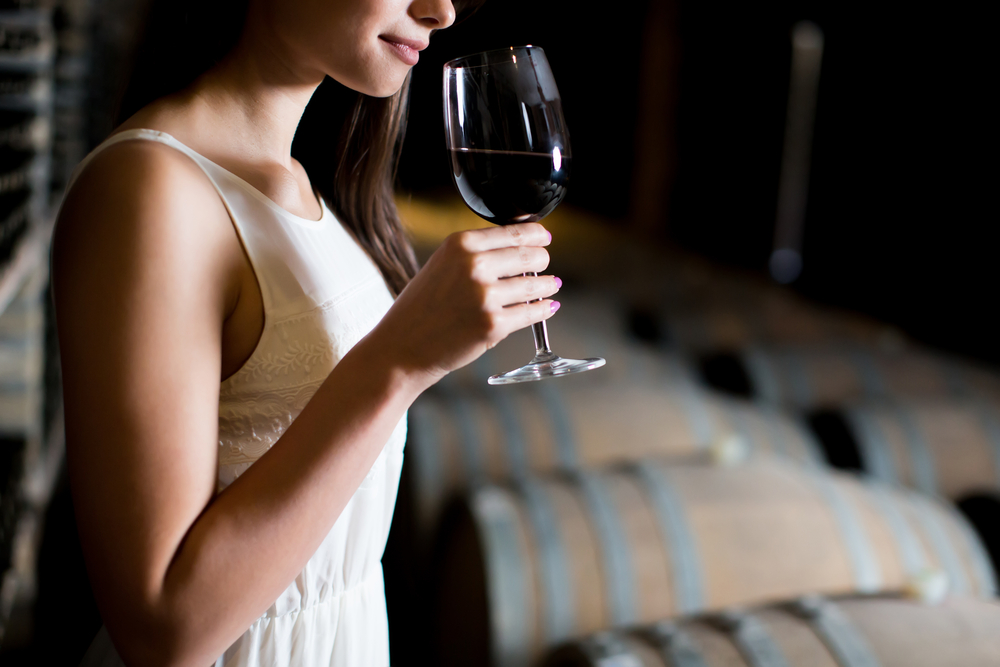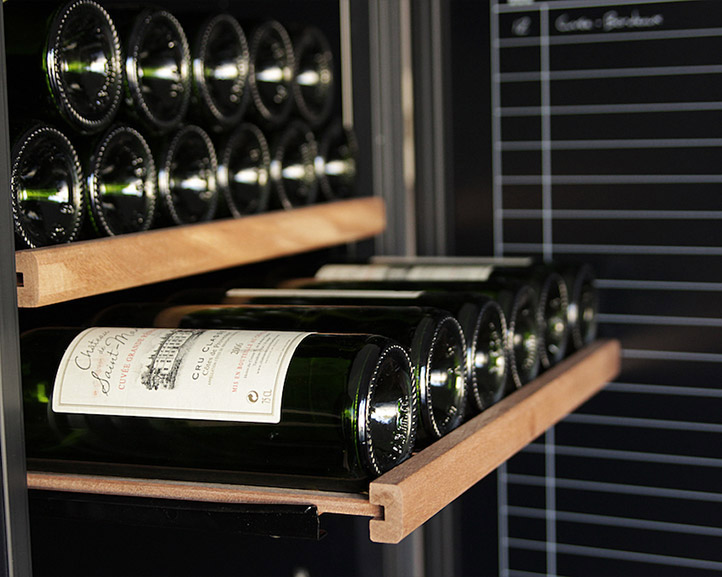
Aging wine is based on what we call the five golden rules. There are obviously other things to take into consideration, but these five parameters are the ones that have greatest effect.
- Correct temperature
- Vibration-free
- Humidity
- Odourless
- Free from direct sunlight
Correct temperature
Aging your wine at the correct temperature is an important factor for the wine to develop properly. The concept of the correct temperature not only means that the temperature should be at the right level, but also that it should be constant. A temperature that fluctuates (e.g. in a storeroom outdoors or a poorly insulated cellar) is bad both for the wine and the cork, whereby a basic prerequisite is that you want to have the same temperature all year round when you age wine.
12 degrees is a temperature level that is good for the wine. A few degrees below or over will not ruin the wine, the most important thing is to keep it within a span of 10-14 degrees and that the temperature stays constant.
Contrary to what many people think, all types of wine should be stored at the same temperature. Red and white wine is stored at the same temperature, even if the recommended serving temperature can differ considerably. A red wine needs to be taken out much earlier, while you might have to put a white wine in the fridge before drinking it.
What happens when you age wine at the wrong temperature? A high temperature is most detrimental, since it leads to chemical processes that affect the taste of the wine. If the temperature is too low this can also affect the taste, but will mainly lead to stopping the process of maturing.
Humidity
The humidity in the aging environment does not affect the actual wine, but rather the cork and the label. A high level of humidity is not detrimental for the wine, but it ruins the label and this is both unfortunate and impractical. When the humidity is too low the wine dries out, which causes air to come in contact with the wine and leads to an oxidation process. To prevent this the humidity should lie around 75%.
Humidity is also the reason why you should store your bottles horizontally. This causes the cork to come in contact with the liquid inside, which reduces the risk of drying out.
This is the basis for all aging of wine. If we were to choose the factors we consider to be most important it would be temperature and light.
As usual it is a matter of finding an aging solution that is both practical and beneficial. You might not want to have to go too far to collect your wines, or have a room that feels safer than another, in which case it is a question of compromising and being creative.

Vibrations
Vibrations also have a negative effect on the process of maturing. Vibrations can in fact be used to speed up the process of maturing, but it often leads to a deterioration of the quality of the wine. In an aging environment it is therefore something that you definitely want to avoid.
Light
Just like people, wine is affected by ultraviolet light. It is the rays of light that cause the grapes to mature when growing on the vines, and the effect is the same when they have been refined to wine. The result is that the wine matures too quickly and uncontrollably, and that the wine looses its balance. The solution to this problem is to store your wines in a completely dark environment, or with a glass door that has UV protection.
Oudor
Odour in contact with wine bottles can also cause the wine to assume the quality of the surrounding air. It is very difficult for air to penetrate through the glass wall of the bottle, but is easier through the cork, especially when the cork has dried up as a result of low humidity or temperature. The wine can be affected by this odour, and the problem is obviously greater the more pungent the odour is.
The basic rule is not to store your wine near anything with a strong smell. If your wine cooler or wine cellar has a carbon filter you get extra protection and constant air purification to ensure an odourless environment.

